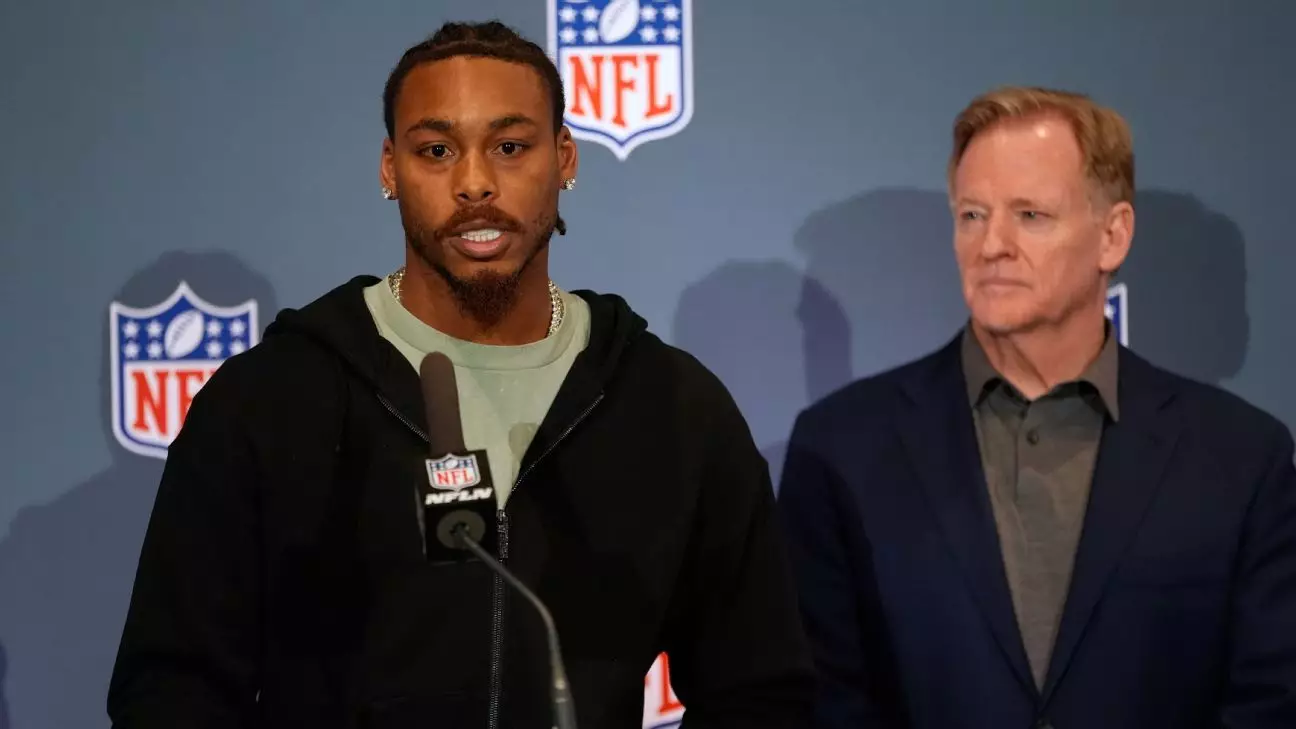Empowering Dreams: The NFL’s Historic Step Toward Olympic Flag Football
Hey there, fellow sports enthusiast! If you’re like me, you’ve probably noticed how sports have an incredible way of bringing people together, regardless of where they come from. It’s truly amazing to see how athleticism can transcend borders and unite us all in the spirit of competition. This is why the recent decision by the NFL to introduce flag football into the 2028 Los Angeles Olympics is so exciting. It’s a groundbreaking move that not only changes the game but also offers new opportunities for athletes around the world.
As someone who grew up watching football and dreaming of making it big, you can imagine how thrilling this development must be for players like Justin Jefferson. The thought of representing your country on such a prestigious international stage is exhilarating. I remember my childhood dreams of competing at the Olympics; it felt so far away given football’s limited global reach at the time. This step forward by the NFL is about more than just sport—it’s about global recognition and inspiring young athletes everywhere to dream bigger.
Key Takeaways
- The NFL has approved a proposal for its players to participate in flag football in the 2028 LA Olympics.
- This move marks a significant leap toward international recognition for American football.
- Flag football offers a less pressured, more fun way for athletes to engage with the sport.
- Participation introduces challenges such as balancing NFL seasons with Olympic aspirations.
From Gridiron to the Global Stage
For years, American football has been a staple in U.S. culture, celebrated every Sunday with unmatched enthusiasm. However, its reach beyond North America has been somewhat limited. With this new development, we’re seeing an exciting shift towards global engagement. Justin Jefferson, reflecting on this significant change, expressed his joy over the opportunity to compete for an Olympic gold medal—a dream that once seemed out of reach. The NFL’s embrace of flag football signals an understanding that growth requires adaptation and reaching out to new audiences worldwide.
The NFL’s executive vice president of football operations, Troy Vincent, beautifully sums up this evolution—it’s about more than just playing a game. It’s about stepping onto a global platform and showcasing incredible talents while spreading the excitement of flag football far and wide. His comparison to the ‘Dream Team’ of 1992 paints a picture of new global heroes emerging from this initiative, inspiring a generation just as basketball did back then.

Flag Football: A Game Changer for NFL Players
Flag football isn’t just about Olympic participation; it brings unique benefits that traditional football might not offer. Justin Jefferson experienced this firsthand during the Pro Bowl Games where flag football was highlighted. The game presents a less intense environment which allows players to focus on enjoyment and camaraderie rather than just competition. This format encourages athletes to bond with each other and refine skills that are transferable across various sports disciplines.
Yet, taking on dual roles—balancing NFL commitments with potential Olympic participation—poses its own challenges. As Jefferson wisely pointed out, maintaining peak performance over three more grueling NFL seasons adds complexity when considering Olympic ambitions. The physical demands are substantial, and as athletes age, their bodies require careful management to ensure longevity and readiness for such endeavors.
Negotiations Ahead: The Path to Participation
The journey toward Olympic flag football is not without obstacles. The NFL must navigate intricate negotiations involving the NFL Players Association, Olympics officials, and other governing organizations. Establishing clear guidelines to protect players while addressing club interests and logistical needs is crucial. Creating these frameworks ensures that player safety remains paramount as they embark on this international adventure.
A fresh twist introduced by this Olympic inclusion is the chance for players with diverse backgrounds to represent different nations. This dynamic enhances both competition and unity as athletes proudly showcase their heritage on a global stage. It serves as a beautiful reminder that while we may play under different flags, we all share in the joy of sport.
Balancing Dual Aspirations: The Challenges Ahead
Like any major undertaking, introducing flag football to the Olympics involves overcoming certain hurdles. Scheduling conflicts between dedicated sporting calendars pose significant concerns—ensuring that players can fulfill both their NFL duties and Olympic dreams without overlap is essential for success. Peter O’Reilly from the NFL raised valid points about these complexities which need careful consideration.
The adaptability required from athletes trained primarily in traditional football highlights another challenge—diversifying skill sets in preparation for Olympic competition is key. Brian Asamoah II humorously acknowledged that while NFL players bring significant prowess to flag football, seasoned specialists in the sport demonstrate exceptional talent too. Respecting these athletes’ dedication is vital for fostering inclusivity within this new competitive landscape.

Tackling these challenges head-on opens doors for innovation and growth within the sport. Collaborative efforts between players and league officials can help shape a vision centered on unity and passion for flag football as it takes its rightful place on an international stage.
A New Dawn for American Football
This historic decision allowing NFL players to participate in Olympic flag football marks an era of transformation for American football itself—inviting athletes everywhere to reimagine their roles while inspiring younger generations relentlessly pursuing their dreams too! By committing itself globally through initiatives like these,[CONTINUE FROM HERE]
NFL
Olympics
Flag Football
Sports Evolution


Leave a Reply